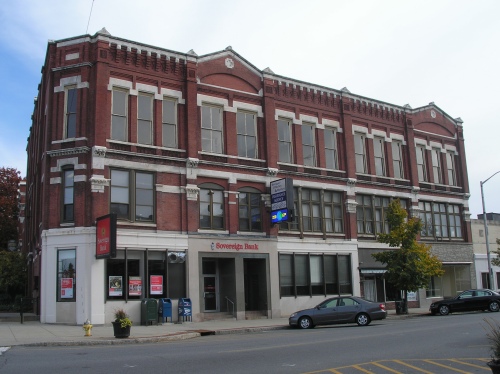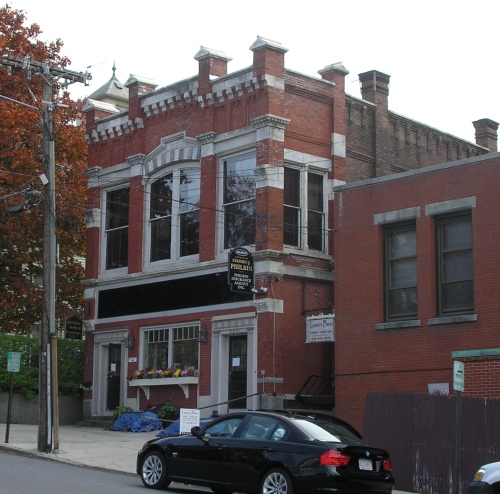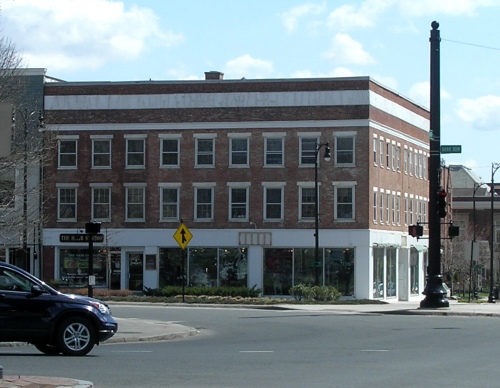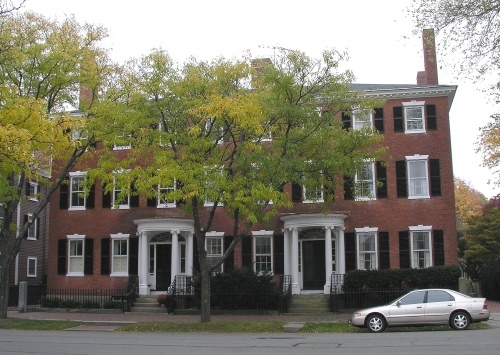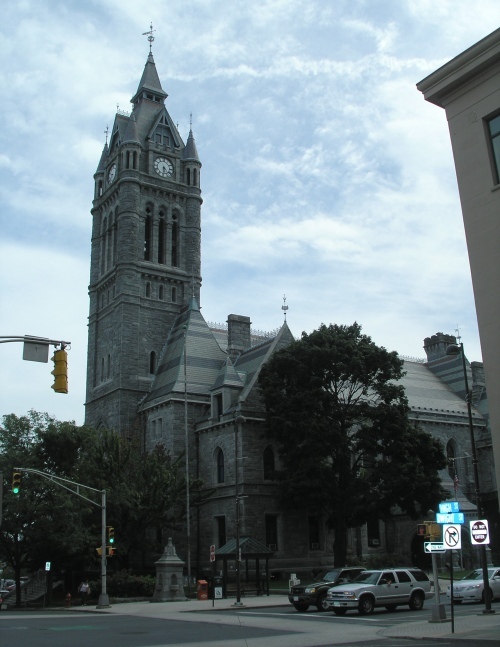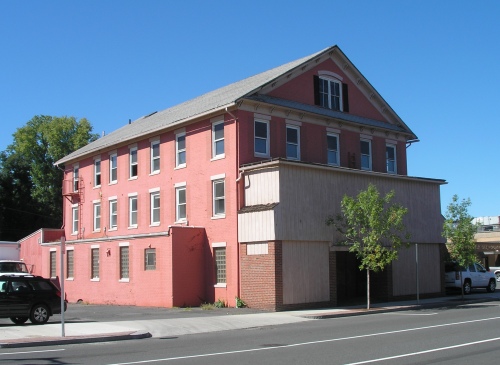Museum of Russian Icons (1853, 1859, 2006)
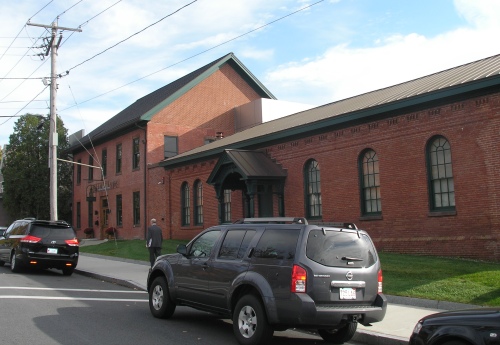
The building at 203 Union Street in Clinton was constructed in 1853 to house the Bigelow Mechanics Institute. This institution was founded in 1846. As described in History of the Origin of the Town of Clinton, Massachusetts, 1653-1865 (1896), by Andrew E. Ford:
April 14, 1846, a petition was made to a justice of peace by H. N. Bigelow, J. R. Stewart, L. F. Bancroft, J. B. Parker, Sanborn Worthen, A. S. Carleton and G. H. Kendall, representing that those gentlemen were “desirous of forming an association for the purpose of mutual improvement and for the further purpose of extending improvement to and throughout the village in which they reside, and the neighborhood with which they are more immediately connected, by sustaining courses of lectures upon the sciences and their connection with the mechanical arts, by sustaining, if their means shall allow it, a school for scientific instruction and education in those branches more immediately connected with their employment, and the collection of a library, a reading room and a repository of ‘models and drawings of useful machines and mechanical inventions.” In answer to this petition, a warrant was issued for a meeting for the purpose of organizing an association with these ends in view.
[. . .] The preamble of the constitution presented and adopted offers a broader basis of organization than was suggested in the petition, namely: “In order to promote our mutual improvement in literature, science and the mechanical arts; —to diffuse a taste for literary, scientific and mechanical pursuits in the community in which we reside;—and to develop the social, moral and intellectual natures with which we arc endowed by one Creator.”
The society took the name “The Bigelow Mechanics’ Institute in Clintonville.” E. B. Bigelow, in whose honor this name had been assumed, in addition to other donations, gave to the society as a recognition of his esteem, the valuable air pump, now used by the Clinton High School, and two hundred dollars to be used for the good of the Institute. A fee of five dollars was charged for membership, and some forty men joined.
At various times, from 1853 to 1873, the Institute also rented out space in the building to the postal service, to the Town of Clinton for its armory and to local businesses. Next door to the Institute, the building at 195 Union Street was built in 1859 to serve as Horatio N. Bigelow‘s private office. The brothers, Horatio N. and Erastus B. Bigelow developed Clinton as an industrial community.
In 1873, the Bigelow Mechanics Institute disbanded and its library was donated to the town to become the Bigelow Free Public Library. The Institute’s old building became a tenement. The adjacent building, H. N. Bigelow’s former office, served as the the Second District Court of Eastern Worcester County from 1886 to 1972, and its basement was the Clinton Police Station until 1969. Both buildings later served as law offices. In recent years the complex has undergone an extensive transformation to house the Museum of Russian Icons, founded in 2006 by art collector and industrialist Gordon B. Lankton. A contemporary, aluminum-clad addition to the museum was constructed in 2008.
